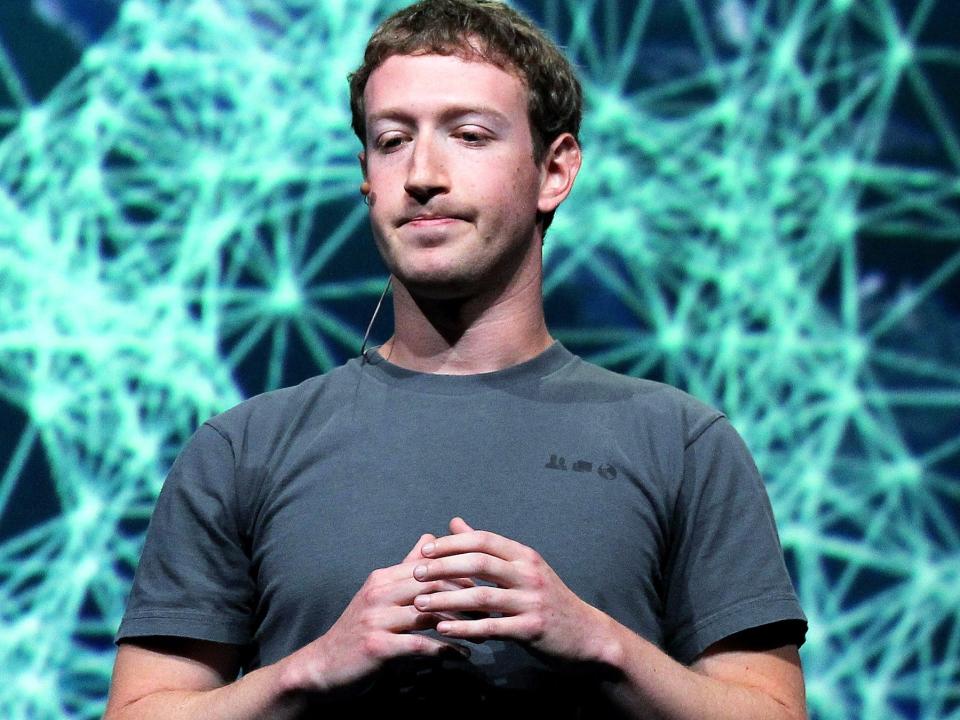Mark Zuckerberg revealed one of his 'great regrets' — and the timing doesn't seem like an accident (FB)

Justin Sullivan/Getty
Facebook CEO Mark Zuckerberg said he regrets not having a bigger impact on "the way that mobile platforms developed" in the last decade.
Because Facebook was a small company when iOS and Android were first emerging, he says "that just wasn’t a thing we were working on."
The perspective comes as Facebook is trying to get past a backlash about certain ways its product has harmed society.
Mark Zuckerberg, at 33 years old, is worth billions of dollars and has built a product that's used by 2 out of every 7 people on the planet.
But that doesn't mean the man has no regrets.
During Facebook's Q1 conference call on Wednesday, Zuckerberg revealed one of his "great regrets" about his stewardship of the company. Facebook, in Zuckerberg's view, did not play enough of a role developing and influencing the mobile technology that's become society's primary means of computing.
"Frankly, we haven't been a hardware company or an operating system company," Zuckerberg said during the call.
Smartphones and other mobile gadgets are designed around apps, instead of people, the Facebook CEO explained. Were Facebook not so busy building its own service at the dawn of the smartphone age a decade ago, it would have been able to show everyone a better way.
"One of my great regrets in how we’ve run the company so far is I feel like we didn’t get to shape the way that mobile platforms developed as much as would have been good," Zuckerberg said.
Zuckerberg made the comments in response to a question about Facebook's Oculus virtual reality headset — a product that Zuckerberg believes could lay the foundation for a new and improved "people first" computing platform.
It's a convenient time for Facebook to make this point
Facebook's struggles with mobile have impacted the company before, most notably when Facebook was slow to move its advertising business to mobile after its 2012 IPO and its stock tanked.
But it's tough not to view his comments in the context of the current backlash facing the company, including Facebook's role in spreading misinformation and the misuse of its users' private data. Zuckerberg spent two days on Capitol Hill earlier this month getting grilled by lawmakers about Facebook's responsibility.
To hear Zuckerberg tell it now, Facebook is merely a bystander struggling to get buy in a mobile world created by other companies. And as Facebook looks for ways to recast its role in the current narrative and to shield itself from the blame, Zuckerberg's "regret" could have some nice benefits.
Here are Zuckerberg's full comments from the call:
"One of my great regrets in how we’ve run the company so far is I feel like we didn’t get to shape the way that mobile platforms developed as much as would have been good, because they were developed contemporaneously with Facebook early on. iOS and Android came out around 2007, we were a really small company at that point, so that just wasn’t a thing we were working on.
The way that I think about this is that people should really be at the center of how we design technology. It shouldn’t be designed around apps, it should be designed around our relationships, because that’s what matters to people, and that’s not the world we’re on, on mobile."
NOW WATCH: Why Apple makes it so hard to get a new iPhone battery
See Also:
Investors are dying to know if the Cambridge Analytica scandal means people use Facebook less
Facebook just published a message for its users: No, you're not the product
SEE ALSO: Facebook shredded Wall Street's Cambridge Analytica worries with a giant Q1 and its stock is soaring

 Yahoo Finance
Yahoo Finance 
